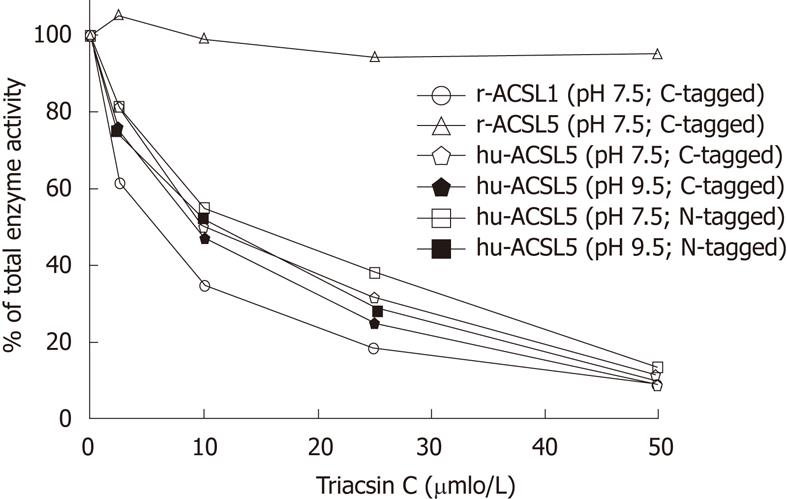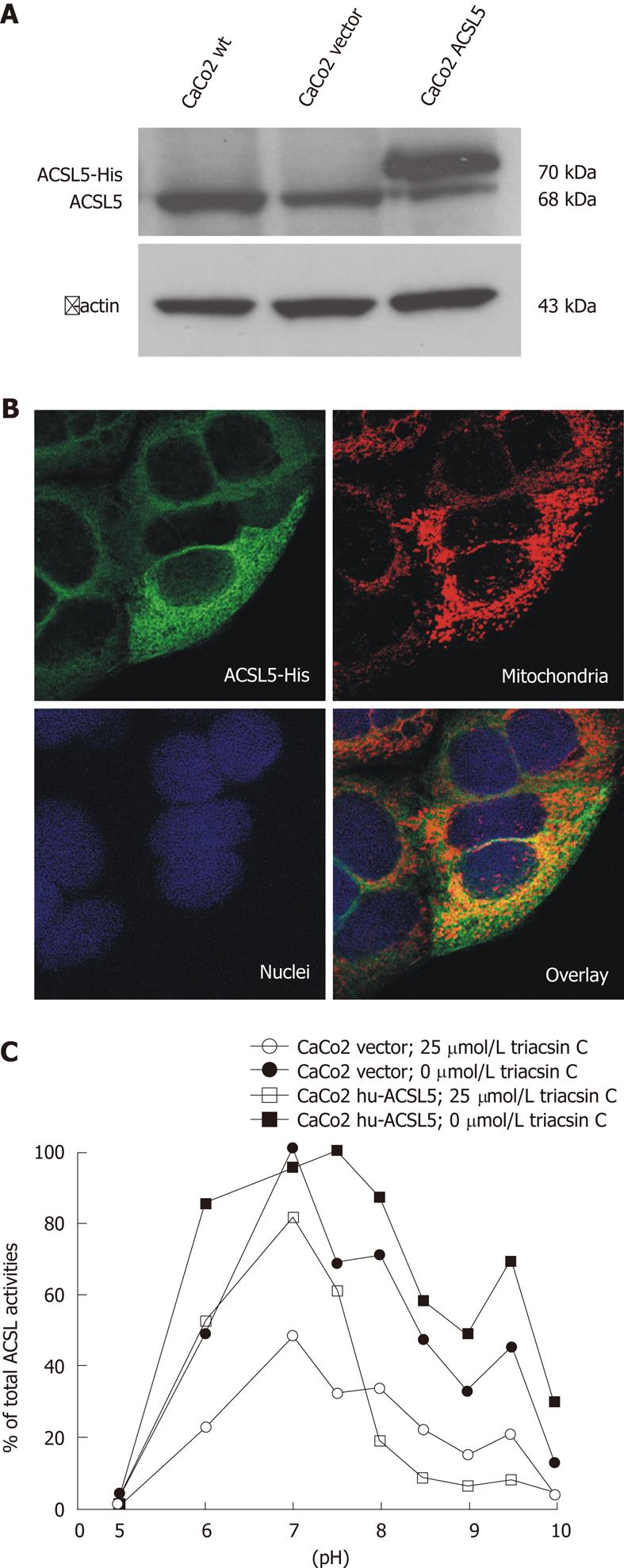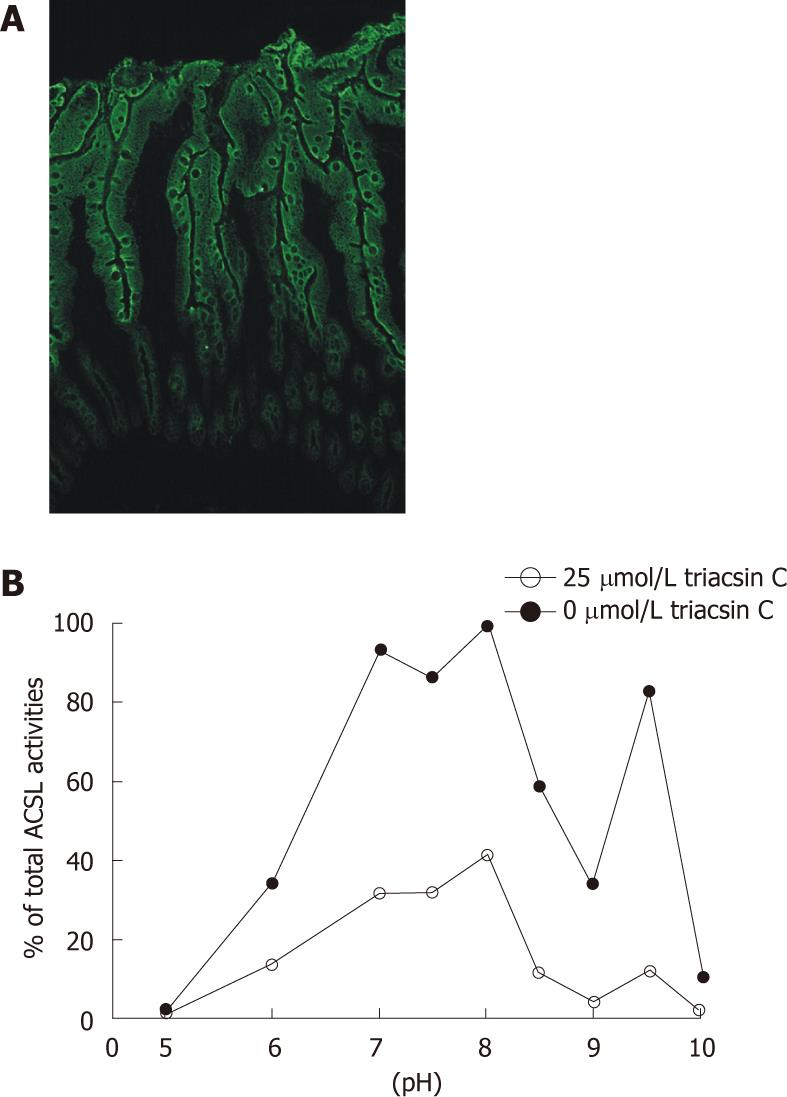Copyright
©2011 Baishideng Publishing Group Co.
World J Gastroenterol. Nov 28, 2011; 17(44): 4883-4889
Published online Nov 28, 2011. doi: 10.3748/wjg.v17.i44.4883
Published online Nov 28, 2011. doi: 10.3748/wjg.v17.i44.4883
Figure 1 Sensitivity of recombinant acyl-CoA synthetase 5 proteins to triacsin C.
Enzyme activity of Ni2+-affinity purified recombinant r-ACSL1, r-ACSL5, hu-ACSL5 C-terminal 6xHis-tagged enzyme, and hu-ACSL5 N-terminal 6xHis-tagged enzyme were assayed at pH 7.5 (white symbols) and pH 9.5 (black symbols) in the presence and absence of triacsin C as described in the methods section. ACSL5: Acyl-CoA synthetase 5.
Figure 2 Human acyl-CoA synthetase 5 is triacsin C sensitive in CaCo2 cells.
A: CaCo2 cells were stably transfected with the full-length ACSL5 expressing pcDNA_DEST40 plasmid or empty control vector. Expression of N-terminal 6xHis-tagged hu-ACSL5 protein in CaCo2 was analyzed by Western blot using anti-ACSL5 and anti-His antibodies; B: Indirect immunofluorescence of N-terminal 6xHis-tagged hu-ACSL5 proteins, mitochondria, and nuclei in CaCo2 cells shows the mitochondrial localization of recombinant ACSL5 proteins. Original magnification × 400; C: Analysis of ACSL activity (pH 5-10) in hu-ACSL5 CaCo2 transfectants and controls (pcDNA_DEST40 CaCo2 transfectants and CaCo2 wild type) in the presence (white symbols) or absence (black symbols) of 25 μmol/L triacsin C. ACSL5: Acyl-CoA synthetase 5.
Figure 3 Acyl-CoA synthetase 5 related acyl-CoA synthetase activity is sensitive to triacsin C in human small intestinal mucosa.
A: Human small intestinal mucosa after indirect immunofluorescence with anti-ACSL5 antibodies; B: Analysis of ACSL activity in human intestinal mucosa in the presence or absence of 25 μmol/L triacsin C. Triacsin C strongly inhibits ACSL activity in human intestinal mucosa. ACSL5: Acyl-CoA synthetase 5.
- Citation: Kaemmerer E, Peuscher A, Reinartz A, Liedtke C, Weiskirchen R, Kopitz J, Gassler N. Human intestinal acyl-CoA synthetase 5 is sensitive to the inhibitor triacsin C. World J Gastroenterol 2011; 17(44): 4883-4889
- URL: https://www.wjgnet.com/1007-9327/full/v17/i44/4883.htm
- DOI: https://dx.doi.org/10.3748/wjg.v17.i44.4883











